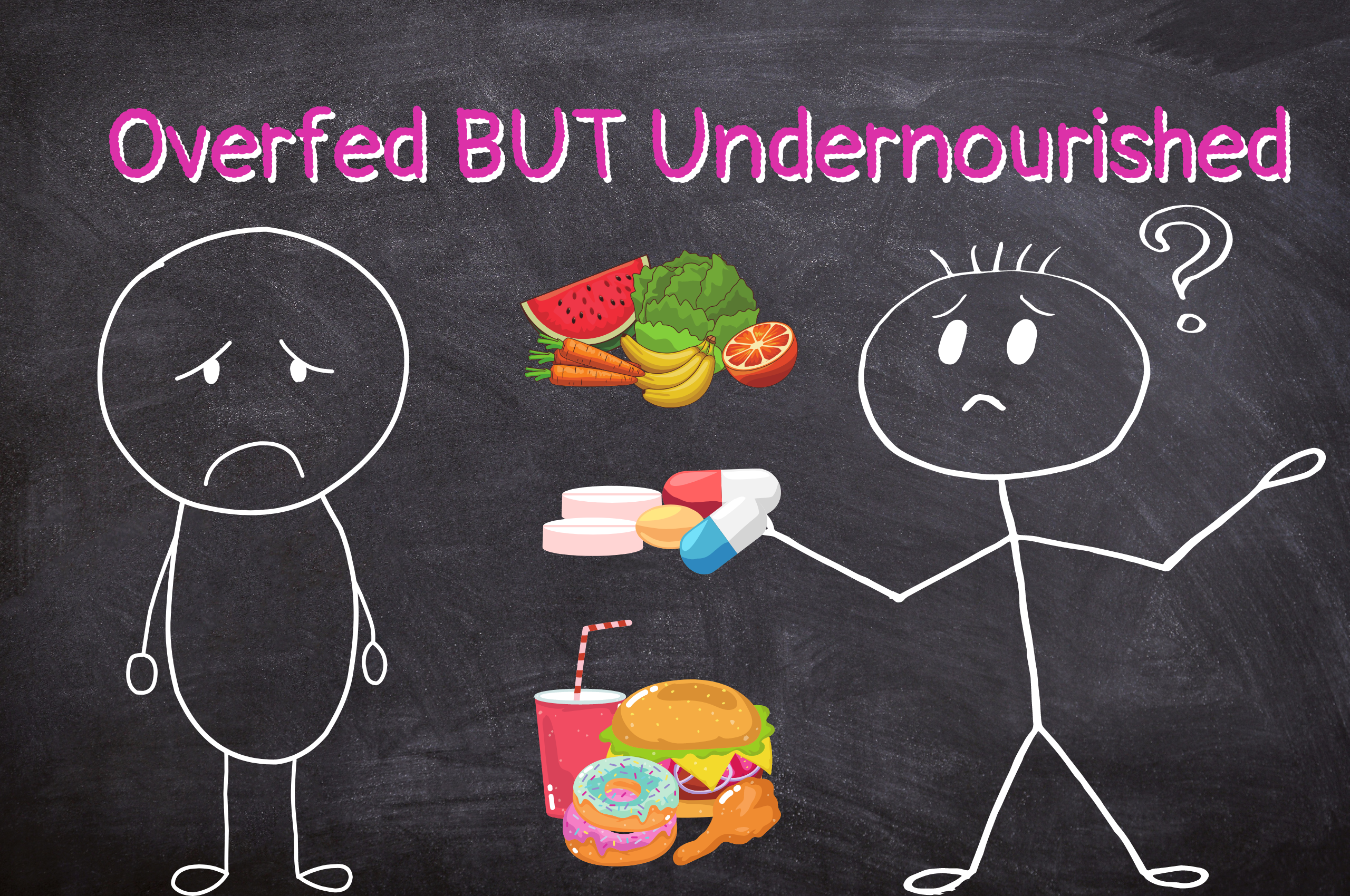
That the foods we are eating today are full of environmental toxins is old news.
But it’s not just about the toxins, it’s also about what your kid is not getting or not getting through its diet and if it is even able to absorb the nutrients.
In this article, we'll explore the importance of a nutritious diet for children and shed light on the role of malabsorption in causing nutrient deficiencies.
We'll also discuss if vitamin supplements are the answer and provide practical tips to ensure optimal nutrient absorption.
Why is a nutrient dense diet important for your child’s health?
In today's fast-paced world, it has become increasingly common for children to consume diets that are high in calories but low in essential nutrients.
On top of that kids in general have a higher need for nutrients compared to an adult because they are still growing and developing.
We also know that as humans, we are exposed to a multitude of toxins each and every day which can’t be avoided completely.
These environmental toxins increase the need for antioxidants, minerals and vitamins needed by the liver for detoxification.
If your kid isn’t getting the nutrients they need, can’t absorb them properly or uses all of them to get rid of the toxins it was exposed to, you have a problem and that problem might look like:
- being underweight, overweight or obese
- constipation or changes in bowel habits
- being pale, weak or lethargic
- tooth decay
- poor physical growth
In some children, poor diet may be associated with:
- behavioral problems
- sleep issues
- problems with emotional and psychological development
- poor concentration or difficulties at school
- suffering from chronic or recurring infections
Is your kid on an “Empty Diet”?
The diet our kids eat nowadays is very high in calories but low in actual nutrients. This phenomenon is often referred to as an "empty diet".
Many of the foods and drinks consumed by children today fall into the category of "empty calories."
These are items that contain high amounts of sugar, fat, or simple carbohydrates but offer little to no nutritional value.
Examples include sweets, cereal, pasta, bagels, doughnuts or bread, sugary drinks, processed meats, fast food, … I think you are getting the idea.
Consuming an empty diet not only leads to excessive calorie intake but also deprives children of vital nutrients necessary for their growth and development.
Promoting a diverse and balanced diet and encouraging children to consume a variety of nutrient-dense foods such as fruits, vegetables, lean proteins, and healthy fats, helps provide a wide range of essential vitamins and minerals.
But what if you are already doing all that and your child still isn’t healthy as a horse?
Well, in that case I’d like you to consider malabsorption.
Malabsorption Causing Nutrient Deficiencies
You already know that making sure your child gets vital vitamins is essential for their body to function properly and optimally.
Absorbing their vitamins is equally as important, as without these nutrients being transported effectively through the body, they will still be vitamin deficient.
Even if they are obediently taking their supplements, if they are not absorbing them, they are going to have a problem and so do you!
Malabsorption is one of the most overlooked reasons for chronic illness.
If anything comes down through the stomach that is not supposed to be coming down into the intestines, your immune system gets aggravated and causes a lot of inflammation.
When you have that inflammation in the first part of your intestine, you don’t absorb your vitamins and minerals the way you are supposed to.
That is called malabsorption.
When you have a sensitivity to a food, for example gluten, you can’t break down the food in the stomach. It goes into the small intestine and triggers that inflammation.
A sensitivity to a food causes inflammation in the intestines. Your child doesn't absorb their vitamins, even if you supplement them, they don’t absorb them very well.
The consequences of malabsorption can be profound and extend far beyond the listed symptoms from above.
Identifying and managing any known food sensitivities or allergies is key in eliminating inflammation in the gut, as well as supporting your child’s gut health.
This can be tricky and you can get easily overwhelmed and lost trying to do this by yourself. I definitely recommend you seek the support of a professional when taking this important step.
Are Vitamin Supplements the Answer?
While vitamin supplements are often seen as a solution to nutrient deficiencies, it's essential to recognize their limitations.
While they can be helpful in certain cases, supplements alone cannot compensate for a poor diet or address the underlying issues of malabsorption.
Even with supplementation, if nutrients are not effectively absorbed by the body, the problem of deficiency persists.
Therefore, healing your child’s gut, with all the necessary measures to do so should always be your primary focus, with supplements used as a complementary measure under professional guidance.
Conclusion
By understanding the impact of malabsorption and prioritizing optimal nutrient absorption, we can ensure that children are truly reaping the benefits of a nutritious diet and the cost and efforts you are putting into that.
While it's concerning to see the prevalence of empty calories and the resulting nutrient deficiencies, there are steps we can take to mitigate these issues.
Remember, simply relying on vitamin supplements is not enough. It's crucial to provide children with a varied and balanced diet that encompasses nutrient-dense foods.
Supporting gut health, identifying and managing food sensitivities, and optimizing digestion are additional measures that will enhance nutrient absorption.
As parents and caregivers, we have the power to shape our children's eating habits and lay the foundation for a lifetime of good health.
Let's prioritize their well-being by offering them wholesome, nutrient-rich foods, while also addressing any potential issues related to malabsorption.
In doing so, we can raise a generation of healthy, happy children who thrive both physically and mentally.
Together, let's make nutrition and gut health a priority and give our children the best possible start in life.
Remember, healthy children are happy children!
Book Your Free Clarity Session
If you're feeling stuck or overwhelmed and need some guidance on how to eliminate your child's nutritional deficiencies, I invite you to book a free clarity call with me.
During the call, we'll go over your child's medical history, current symptoms, and dietary habits to identify potential triggers and create an actionable plan on how to move forward with improving your child’s health.
I'll also share additional tips and resources that have helped my clients see significant improvements in their children's health.
Just click the button below to schedule your call.

0 comments